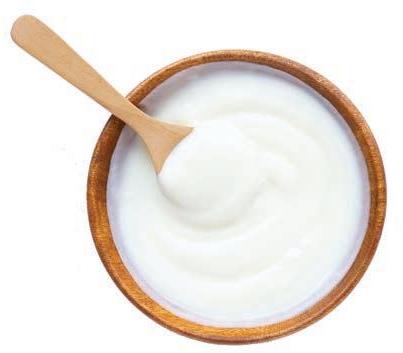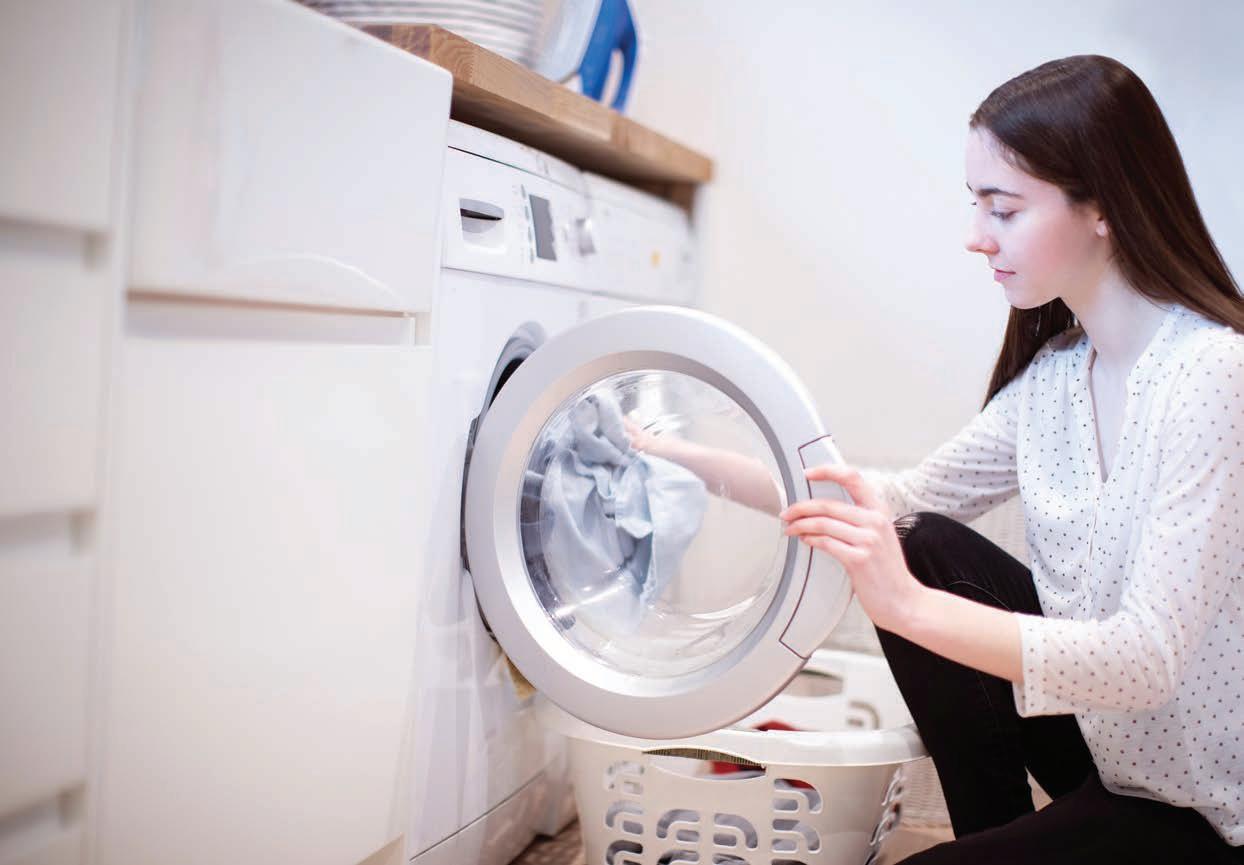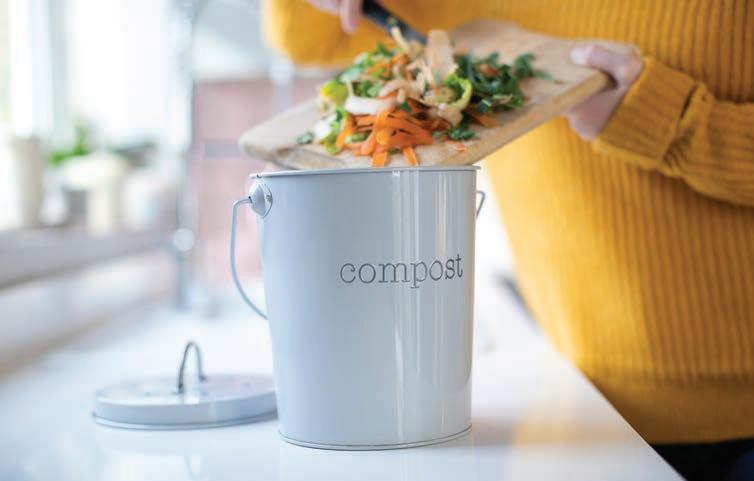
11 minute read
Pre-conceptual care do the males have to do it?
Pre-conceptual care
do the males have to do it?
BY DIANA ARUNDELL
In Australia our children are getting sicker. There have been significant increases in asthma, overweight/ obesity and autism spectrum disorders and more research is confirming that the health status of both parents at the time of conception may be contributing to these factors in our offspring.
Often women are the focus of fertility issues and pre-conceptual care. Reality is that men contribute 50% to the genetic composition of the offspring and almost half of fertility issues experienced by couples include a male fertility factor, yet there are no guidelines for male fertility health. Many men may not be infertile as such but ‘sub-fertile’, meaning there are factors affecting the quality and/ or quantity of their sperm. Sperm are highly susceptible to oxidative damage that can occur due to poor diet and lifestyle choices. These choices as well as environmental factors can contribute to difficulty in conceiving, miscarriage and can increase risk factors of the offspring developing certain diseases later in life. Trans-generational inheritance has been observed in both mouse models and human studies.
Male pre-conceptual care and lifestyle issues have been associated with malformations and birth defects of offspring. Smoking, toxic exposure, advanced age, obesity and medication use have been associated with low birth weight, congenital heart and anorectal malformations, and an increased risk of infant cancers and neural tube defects. The current guidelines to assess semen parameters are the World Health Organisation (WHO) guidelines 2010. Up until that time the semen analysis parameters were based on the WHO guidelines from 1999. The benchmark or acceptable figures for sperm health used by WHO and consequently fertility doctors, are based on the lowest 5th percentile of men. When it comes to making babies, the lowest 5th percentile of healthy sperm in my opinion is not good enough. I aim for all of my male fertility patients to be closer to the 50th percentile for semen parameters to aim for the healthiest possible pregnancy and life birth outcome, which is why preconceptual care in males is so important. Once the sperm and egg have combined, the genes of the baby are locked in so the health of both the female and the male parent pre-conceptually is significant and can impact conception, live birth rate and the health of the offspring later in life. Another interesting factor to note about the WHO semen parameters is how sperm health has decreased between 1999 and 2010. (see table below) This suggests that male fertility is declining and from a health perspective we need to be asking why semen parameters in men have dropped so much in a 10 year period, rather than just moving the goal posts of what we accept as viable or healthy. We need to be identifying why men’s fertility health is dropping and what we can do to address these issues so things don’t continue to get worse, rather than simply shoving couples down the expensive and not always necessary drug assisted reproductive pathways such as IVF. Assisted reproductive medicine such as IVF, IUI etc is a modern, medical miracle which has given the gift of children to many couples who would have otherwise not have experienced such a gift however, I believe many couples who are classified as ‘sub-fertile’ or ‘unexplained infertility’ may be shuffled down a medically assisted fertility path prematurely. 4-6 months of preconceptual care can not only improve chances of a natural conception but also improve success rates of IVF and other assisted fertility treatments.
There are many diet and lifestyle choices that can improve semen parameters in many men. If you are thinking of conceiving, why wait for 1 year after ‘trying’ before looking into what can be done to improve male fertility? Pre-conceptual care ideally needs to start 6 months prior to conceiving. Sperm takes 72-90 days to mature before it’s ejaculated so the effort that is put into a man’s diet and lifestyle now will be ultimately be reflected in his fertility health after 3 months. This is also why if a repeat semen analysis needs to be done, it should be 3-4 months after the first one and there is no point in retesting if no changes have been made. For something to change… something has to change.
Pre-conceptual guidelines for the males: 1 Stop smoking – even 1 per day, including vaping. Active, passive and
CHANGES IN SEMEN/SPERM PARAMETERS
5TH LOWEST PERCENTILE used in semen analysis in Australia
Parameter
Volume
Concentration WHO 1999
2ml
20million/ml WHO 2010 (5th edition)
1.5ml
15million/ml
Progressive Motility
Normal forms 50%
14% 32%
3rd hand (in clothing/curtains etc) smoke affects reproductive health. A child born to a male smoker is 4 times more likely to develop cancer in childhood. The earlier in life a male starts smoking is linked to an increase in Body Mass Index (BMI) of their sons. 2 Avoid alcohol – Limit to 2-3 drinks per week and none for older men. – Consider a white spirit such as gin or vodka in plain mineral water with fresh lime. Not sugary soft drink mixers. 3 Reduce weight – eat more vegetables, eat less sugar and processed food, move your body.
Sperm of obese men display a different epigenetic profile when compared to lean men. Obese fathers have children with a higher risk of insulin resistance, obesity and sub-fertility. 4 Reduce stress – Stress hormones can impact reproductive hormones. Mouse model studies have shown the stress response can be passed on to offspring. Try ‘insight timer’ App for guided meditation and mindfulness daily, exercise daily, yoga, screen free time, 8 hours sleep, do things that make you happy, speak with a counsellor if you feel stuck. 5 Reduce dietary and environmental toxic exposure at home and at work – Phthalates, Bisphenol A, pesticides and solvents etc have been shown to increase risk of childhood illnesses in offspring including asthma and learning difficulties. Glycosphates in pesticides can reduce sperm motility. Reduce exposure to chemicals/plastics, chemically laden personal care products and pesticides. Support detoxification pathways if necessary and eat organic where possible. Don’t heat up/store food in plastic. Choose glass or stainless steel water bottles. 6 Minimise caffeine – limit coffee to 1 cup or less per day and avoid caffeinated soft drinks and ‘energy’ drinks including ‘pre-work out’ supplements as these usually have high amounts of caffeine, sugar and artificial additives. A 2016 study showed that pregnancies conceived by men who drank more than 2 coffees, teas or sodas per day before conception were 1.73 times more likely to miscarry compared to men who drank less. 7 Reduce electromagnetic field (EMF) and Wi-Fi exposure – keep laptops and phones away from laps and pockets. 8 Keep the scrotum cool – wear boxers, cool down after exercise, wear loose clothing. Especially important for chefs and cyclists. 9 Eat more vegetables – In 2016 the CSIRO conducted the largest fruit and vegetable survey in Australia and found that only 15% of men met both fruit and vegetable guidelines. How much do we need? 5 serves of vegetables and 2 serves of fruit. (See table below) Eat a rainbow at every meal. At lunch and dinner aim for your plate to be 80% vegetables/salad plus good quality protein (lean meat, fish, eggs, legume, tofu and healthy fats (olive oil, nuts and seeds, nut butters). 10 Selenium, zinc, vitamin C and co-enzyme Q10 are important nutrients for sperm health and suboptimal levels can lead to low sperm count, motility and morphology issues. Selenium rich foods include: sunflower seeds, brazil nuts, mushrooms, eggs, pork, chicken, tuna, salmon, squid. Zinc rich foods: pumpkin seeds, salmon, yoghurt, oysters, chicken, cashews, red meat, almonds, tahini Vit C rich foods: Berries, yellow, red and orange fruits and vegetables. Consider practitioner prescribed, evidence based nutrients and herbal medicine to enhance sperm health parameters.
CSIRO 2016 study 4 out of 5 Australian Adults are not meeting daily fruit and vegetable requirements of 5 serves of vegetables and 2 serves fruit
1 serve vegetables =
½ cup cooked greens ½ cup beans, peas or lentils 1 cup green leafy or raw salad vegetables ½ cup corn ½ medium potato/sweet potato 1 medium tomato.
Diana Arundell is a university-qualified naturopath and consults from her Avoca Naturopath clinic. She has a special interest in fertility and pregnancy health, digestive health, immune function and family wellness programs. She was a nutrition lecturer at Macquarie University for 10 years, and is an accredited Journey Practitioner. For further information please contact Diana Arundell at Avoca Naturopath on 0410 465 900.
IS YOUR FAMILY COMPLETE? Have you thought of your options? Have you considered a vasectomy?

30 Renwick Street, Wyoming Phone: 4328 2122
Vasectomies are a permanent and very effective way to stop unwanted pregnancies. They are performed under local anaesthetic and have a quick recovery time. For more information regarding the procedure, fees or any other issues of concern please visit our website or contact our friendly staff. www.cornerfamilysurgery.com.au
Formulating The Future One Thought at a Time...
1 Bridge Avenue Chain Valley Bay NSW 2259 4358 3155 Workshops Early Learning Centre Mentoring Workshops Early Learning Centre Mentoring 1 Bridge Avenue Chain Valley Bay 4358 3155
PlayConnect a welcoming place and a great way to make friends
Based at an accessible venue near you, Play Connect is a supported playgroup program for families with children with Autism Spectrum Disorder, (ASD), developmental delays or behavioural concerns looking for a unique, welcoming and supportive community.
PlayConnect is an early intervention initiative, children do not require a formal diagnosis or referral to come and enjoy all that PlayConnect has to offer. PlayConnect is a playgroup for the whole family, siblings and caregivers are also welcome and included at PlayConnect. PlayConnect focuses on bringing together families and communities to learn through play in a safe, supportive, engaging environment. All activities are adapted to meet the needs of the individual children and families attending.
Groups are generally smaller and designed to help children practice and learn new skills in a friendly environment, while supporting parents and caregivers to share knowledge and experiences, make friends in an environment of fun and mutual understanding.
At a PlayConnect Playgroup you will find structured routines, smaller group sizes, positive encouragement for children and caregivers and information about the variety of services and ‘PlayConnect has been such a valuable program for our family… I instantly felt accepted into a group of people facing similar challenges that really understood the issues that ASD families face… The support and acceptance from the staff and other families has been so positive… I have had access to resources and ideas that have helped our journey, both leading up to, and after our diagnosis… My children thoroughly enjoy attending PlayConnect and it has provided us with such a valuable support network that I am truly grateful for.’

opportunities available within the local community.
PlayConnect playgroups are supported through Department of Social Services funding. PlayConnect Playgroup near me? The Play Hub, West Gosford To register your interest please contact Coastwide Child and Family Services on 4340 1111, or email admin@ccfdc.com.au

have your party in our PLAYGYM or our entertainers can come to you!

SHOP: Licensed Partyware, DIY Helium Kits, Costume & Party Hire Jumping castles and ball pits 310 Mann Street, Gosford Ph: 4322 4418 www.JJcc.com.au
O p e n a n d h o n e s t Q u a l i t y a n d E x c e l l e n c e
C e l e b r a t i n g d i v e r s i t y
R e s p e c t i n g t h e c h i l d
E n g a g i n g L e a r n i n g F o u n d a t i o n s f o r S u c c e s s P o s i t i v e R e l a t i o n s h i p s
C o n s u l t a t i o n & c o l l a b o r a t i o n










